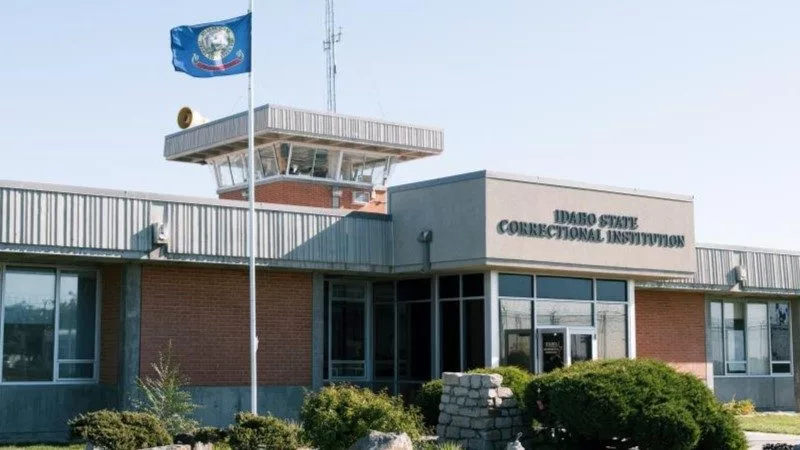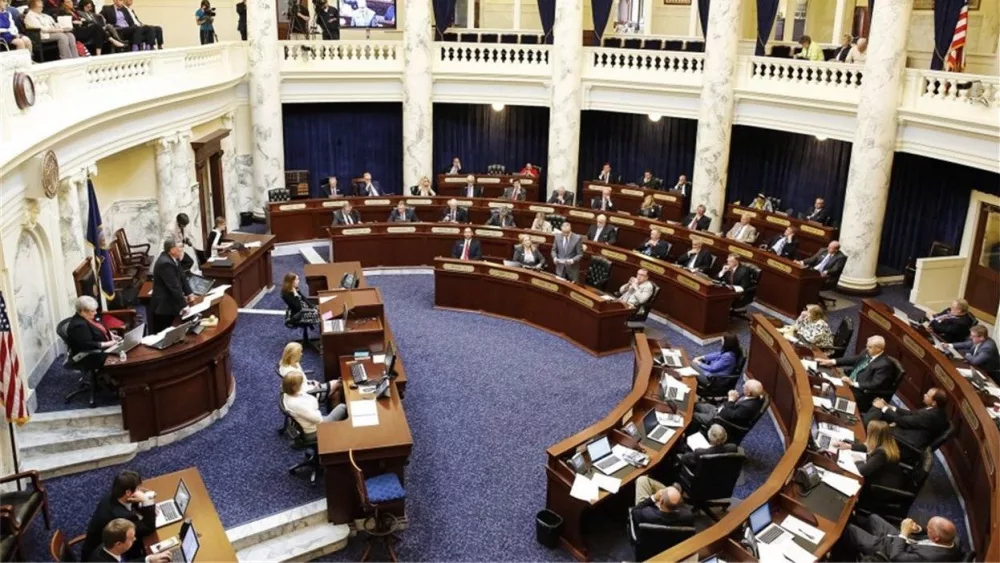BOISE, ID – A bill to make death by firing squad the main method of execution in Idaho is moving to the Senate floor for a vote after passing the Senate Judiciary and Rules Committee on Wednesday afternoon.
If House Bill 37 is passed into law, Idaho could become the only state in the U.S. to have death by firing squad as the primary death penalty method.
Nine people are on death row in Idaho, and lethal injection is the primary way to execute them, according to Idaho law. However, discussions about the use of firing squads have become more common in recent years. In 2023, Idaho implemented a law to allow firing squads as an execution method when lethal injection is unavailable. And in February 2024, Idaho attempted to execute 74-year-old Thomas Creech by lethal injection, but the execution attempt failed after the execution team was unable to locate a vein for an IV to inject him with the chemicals.
Sen. Doug Ricks, R-Rexburg, said the bill would address challenges that occurred during Creech’s execution attempt and resolve the issue of finding lethal chemicals. The bill’s cosponsor, Rep. Bruce Skaug, R-Nampa, also said on the House floor he believes death by firing squad is a more humane execution method because it is “quick” and “certain.”
The committee mostly voted along party lines to advance the bill, with both Democrats, Sen. Melissa Wintrow, D-Boise, and Sen. James Ruchti, D-Pocatello, voting against its advance. Ruchti said he believes the bill could lead to more lawsuits, since there is not enough data that shows executions by firing squad wouldn’t be botched.
Sen. Dan Foreman, R-Viola, was the only Republican on the committee to oppose the bill.
“It’s cruel, and it’s inhumane,” Foreman told the committee. “I think quite frankly it’s beneath the dignity of the state of Idaho. I say that with no animosity directed at anybody, but since I’m sitting here I have an obligation to tell you how I feel on any given bill.”
Only five states allow firing squad for death penalty
Only five states — Idaho, Utah, South Carolina, Oklahoma and Mississippi — allow firing squads for executions. But the firing squad isn’t the primary death penalty method in any of those states, a spokesperson for the Death Penalty Information Center previously told the Idaho Capital Sun.
Excluding military executions, 144 people have been executed by firing squads in the entire history of the United States, according to a 2016 law review article.
Only three of those firing squad executions have taken place since 1976 — all in Utah — according to the Death Penalty Information Center.
LaMont Anderson, the lead deputy attorney general for the Idaho Attorney General’s Office capital litigation unit, told the committee there are advantages to the firing squad method.
“Number one is less litigation,” Anderson said. “There won’t be litigation regarding whether bullets trigger a medical condition that is unique to a death sentenced murderer. There will be less litigation regarding the protocol. We won’t have to search for execution drugs. (We) won’t have to search for veins. We won’t need a licensed medical doctor to insert an IV. There won’t be botched executions.”
Diana David, the Idaho chapter leader of Survivors Empowered and a survivor of gun violence, testified in opposition to the bill.
“I’ve heard this is the most humane way to execute someone, but I beg to differ,” she told the committee. “No one is thinking of the journalists, the witnesses, the family, the staff, the cleanup crew. That’s bothersome to me. There are people who will relive what they saw for the rest of their lives.”
Idaho Department of Correction spokesperson Sanda Kuzeta-Cerimagic previously said the agency is considering using “a remote-operated weapons system alongside traditional firing squad methods,” but the agency had not finalized its policies and procedures, the Idaho Capital Sun reported.
The bill’s fiscal note says it would have no fiscal impact. However, Skaug said more funds will be needed to develop the firing squad facility, which would come from funds already within the Department of Correction budget and would not involve another legislative budget request.
The Idaho House widely approved the bill on a 58-11 vote earlier this month. The bill now heads to the Idaho Senate for a vote. To become law, bills must pass the Idaho House and Senate and avoid the governor’s veto.
This story first appeared on Idaho Capital Sun.





